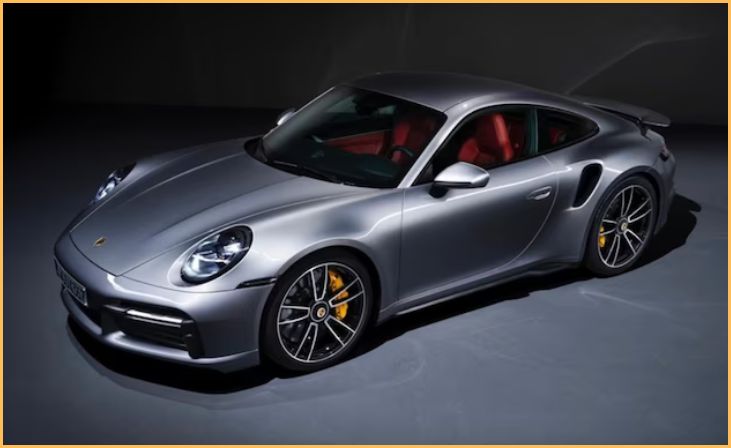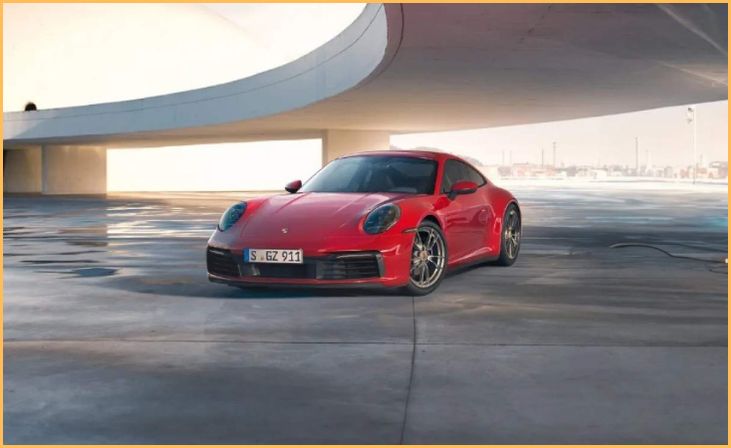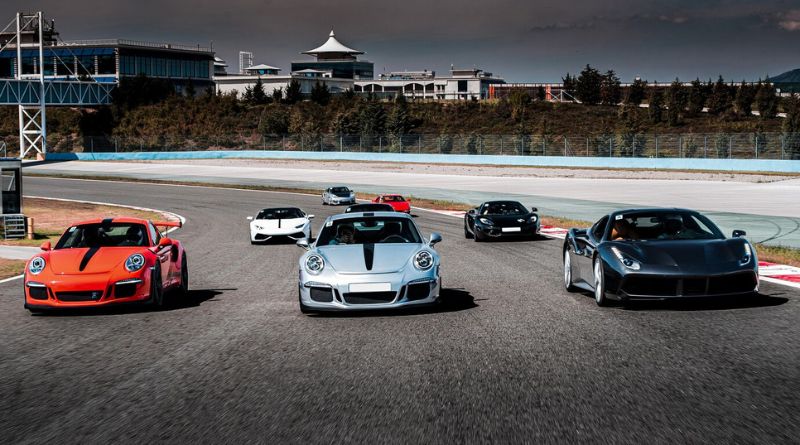Origins of a Supercar Legend – Welcome to the exhilarating world of Porsche, a name synonymous with precision, performance, and automotive excellence. In this exploration, we embark on a captivating journey to uncover the roots and evolution of Porsche as a supercar legend.
From its humble beginnings and the visionary mind of Ferdinand Porsche to the iconic birth of the 911, we delve into the rich history that has shaped this automotive powerhouse.
Beyond the legendary 911, we navigate the twists and turns of Porsche’s racing heritage, technological innovations, and strategic collaborations, all contributing to the brand’s iconic status.
Join us as we unveil the tapestry of Porsche, a brand that has not only withstood challenges but continues to redefine the boundaries of luxury, speed, and driving pleasure. Discover the essence of Porsche – where passion meets engineering perfection.
Origins of a Supercar Legend
Founder and Early Years

Founded in 1931 by Austrian engineer Ferdinand Porsche, the company initially operated as Dr. Ing. h.c.F. Porsche GmbH, focusing on automotive consulting and development. Porsche gained prominence with its design of the Volkswagen Beetle in the 1930s.
Post-World War II, the company transitioned to producing its own cars, introducing the lightweight and agile Porsche 356 in 1948. This marked the beginning of Porsche’s legacy in sports cars, setting the stage for the iconic Porsche 911 in 1963.
These early years laid the foundation for Porsche’s reputation for high-performance vehicles and its enduring impact on the automotive industry.
Also, Read – Komondor: The Majestic Guardian of Hungary’s Pastures
Volkswagen Beetle and Pre-War Era
In the pre-war era, Ferdinand Porsche played a pivotal role in automotive history by designing the iconic Volkswagen Beetle. Commissioned by the German government in the 1930s, the Beetle became a symbol of affordable and practical transportation.
Porsche’s innovative engineering contributed to the Beetle’s distinctive rear-engine design, which later influenced the Porsche 911. Despite the challenges of World War II, Porsche’s work on the Beetle showcased his talent for creating enduring and influential automotive designs.
The success of the Beetle laid the groundwork for Porsche’s evolution from a consulting firm to a legendary sports car manufacturer.
Porsche 356: The First Production Car
In 1948, Porsche introduced the 356, marking the company’s debut as a sports car manufacturer. The Porsche 356 was the first production car bearing the Porsche name, and it swiftly became an icon in the automotive world. Boasting a lightweight and aerodynamic design, the 356 showcased Ferdinand Porsche’s engineering prowess.
With a rear-engine layout and superb handling, it set new standards for performance and style. The 356’s success laid the foundation for Porsche’s legacy, establishing the brand as synonymous with high-performance sports cars and shaping the company’s trajectory towards becoming a supercar legend.
Porsche 911: A Design Icon Emerges
In 1963, Porsche unveiled the 911, a masterpiece that would become an enduring design icon. The brainchild of Ferdinand “Butzi” Porsche, the 911’s sleek and distinctive shape, rear-engine configuration, and performance capabilities set it apart.
Its timeless design has evolved over the decades while maintaining the essence of the original. The 911 not only revolutionized sports car engineering but also became a symbol of luxury and speed.
With continuous innovation and racing success, the Porsche 911 solidified its place as a design and engineering legend, embodying the spirit of the brand and captivating automotive enthusiasts worldwide.
Also, Read – Navigating Relationships with Siblings and Parents
Racing Success

Porsche’s racing success is integral to its supercar legend. The brand has triumphed in prestigious events like the 24 Hours of Le Mans, the Targa Florio, and the Carrera Panamericana. Notably, the Porsche 917 secured multiple Le Mans victories in the early 1970s, showcasing engineering excellence. The 956 and 962 models dominated endurance racing in the 1980s.
Beyond Le Mans, Porsche excelled in various motorsports categories, earning accolades and cultivating a performance-oriented reputation. Racing victories not only validated Porsche’s technical prowess but also translated into advancements for their road cars, solidifying the brand’s position as a leader in both the track and the luxury sports car market.
Expansion and Diversification
Porsche’s expansion and diversification strategies have been pivotal to its evolution. Beyond the iconic 911, the brand broadened its portfolio with models like the 924, 944, and 928, catering to diverse market segments.
The introduction of the Cayenne in the early 2000s marked Porsche’s entry into the SUV market, proving commercially successful. Collaborations with Volkswagen and Audi on shared platforms further extended Porsche’s reach.
While maintaining a focus on high-performance sports cars, these strategic moves ensured Porsche’s relevance in evolving automotive landscapes, demonstrating adaptability and a commitment to meeting the varied preferences of a global audience.
Collaborations and Innovations
Porsche’s collaborations and innovations have been instrumental in shaping its supercar legacy. The brand has engaged in successful partnerships, including collaborations with Volkswagen and Audi, sharing platforms and expertise.
Porsche’s commitment to innovation is evident in the development of advanced technologies, such as hybrid and electric powertrains. The brand’s pioneering efforts, as seen in the Porsche 959, Carrera GT, and the 918 Spyder hybrid, highlight a continuous pursuit of cutting-edge engineering.
These collaborations and innovations not only reinforce Porsche’s position as a technological leader but also contribute to the brand’s ability to adapt to changing automotive landscapes, ensuring a dynamic and forward-looking presence in the industry.
Supercars and Limited Editions
Porsche’s supercars and limited editions exemplify its pursuit of automotive excellence. The iconic Porsche 959, a technological marvel in the 1980s, set the stage for future high-performance models. The Carrera GT, introduced in the early 2000s, showcased advanced engineering and remains a collector’s gem.
The 918 Spyder hybrid, a limited-production hypercar, further demonstrated Porsche’s commitment to blending performance with sustainability.
These exclusive releases not only push technological boundaries but also underscore Porsche’s ability to create vehicles that transcend traditional expectations, solidifying the brand’s status as a purveyor of unparalleled driving experiences and reinforcing its position as a supercar legend.
Continued Excellence
Porsche’s continued excellence is evident in its unwavering commitment to innovation and performance. The introduction of the Taycan, Porsche’s first all-electric sports car, reflects a forward-thinking approach to sustainable high-performance driving.
The brand consistently refines its iconic 911 while embracing modern technologies, ensuring it remains at the pinnacle of sports car engineering. With a focus on precision, luxury, and cutting-edge design, Porsche consistently delivers vehicles that captivate enthusiasts and embody the brand’s legacy of excellence.
Whether through electrification or the evolution of classic models, Porsche’s dedication to pushing boundaries ensures its enduring status as a symbol of automotive prowess and a leader in the pursuit of driving perfection.
Cultural Impact

Porsche’s cultural impact extends far beyond automotive circles, ingraining itself as a symbol of aspiration and performance. The brand’s presence in films, racing documentaries, and popular media has elevated it to an iconic status.
The timeless design of the Porsche 911, recognized globally, has permeated popular culture, becoming synonymous with luxury and speed. Porsche’s success on the race track, from Le Mans victories to global championships, has further embedded its name in the cultural lexicon.
As a driving force in both technology and style, Porsche continues to shape perceptions, influencing how society perceives and admires the intersection of craftsmanship, engineering, and automotive artistry.
Conclusion
In conclusion, Porsche stands as a paragon of automotive brilliance, seamlessly blending a storied history with cutting-edge innovation. From the iconic 911 to diversifying into new frontiers, Porsche has not just adapted but thrived.
The brand’s enduring legacy, cultural impact, and commitment to the future through sustainability solidify its position as a supercar legend.
As Porsche continues to evolve, its relentless pursuit of perfection promises an exciting road ahead, ensuring that the spirit of this automotive icon will resonate for generations to come.
FAQs
The Porsche 911’s iconic status stems from its distinctive design, continuous evolution, and exceptional performance. Its enduring popularity and impact on the automotive world contribute to its legendary status.
Porsche’s success in motorsports has directly influenced the design and performance of its road cars. Innovations and lessons learned on the track have consistently been incorporated into the development of production models.
Porsche has faced economic challenges, market fluctuations, and evolving consumer preferences. However, the brand’s resilience, strategic adaptations, and commitment to excellence have enabled it to overcome these obstacles.







